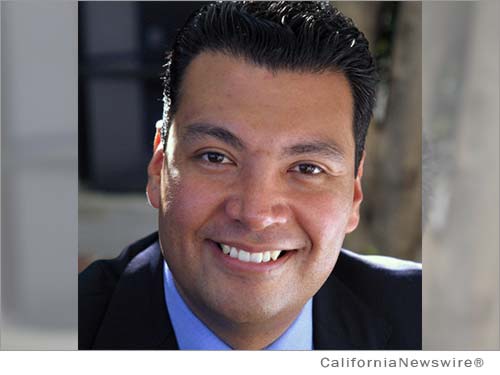
SACRAMENTO, Calif. /California Newswire/ — Calif. Gov. Brown this past week signed Senate Bill 1211, authored by Senator Alex Padilla (D-Pacoima). The bill moves California another step closer to enable citizens to text to 911 for emergency assistance by establishing a transparent and efficient process for funding essential upgrades to the state’s 911 public safety communications systems. The bill goes into effect on January 1, 2015.
“Governor Brown’s signature today advances public safety by helping California modernize its 911 system. SB 1211 recognizes text to 911 as a first step of ‘Next Generation 911’ service that eventually will enable real-time transmission of emergency-related voice, text, data, photos, and video between the public and first responders,” said Senator Alex Padilla.
“Text to 911 enhances public safety for persons with disabilities, in a hostage situation or home break-in when a voice call can be dangerous, and when network congestion from high usage during a crisis makes voice connections unavailable or slow,” added Alex Padilla.
Technological advances in communications have resulted in consumers moving away from traditional voice-only landline service. Almost 75% of calls to 911 are made from a cellular device, but California’s existing 911 system is not equipped to receive texts, data, photos or video. The system is funded by a 911 customer surcharge established each year by the Governor’s Office of Emergency Services (OES).
Communications service providers are on track to meet a December 2014 federal deadline for enabling their customers to text to 911, but none of California’s nearly 500 public safety dispatch centers are ready to accept texts. This bill helps California meet the immense challenge of funding equipment upgrades to enable text to 911 through the existing 911 customer surcharge and by maximizing available federal funds for related public safety communications systems.
SB 1211 requires OES to develop a plan and timeline for testing, implementing, and operating a statewide Next Generation 911 emergency communication system, including text to 911 services. It requires OES to establish a transparent process for annually calculating the cost of implementing the Next Gen 911 plan when it sets the 911 fee and to make the information publicly available to the Legislature, the 911 Advisory Board and on the OES website no later than September 1st of each year.
The bill also helps California leverage the federal funds it has begun to receive for FirstNet, a new public safety broadband network that federal law directs should be integrated with the 911 system. This bill authorizes OES to coordinate 911 system upgrades with FirstNet deployment, including shared infrastructure where technologically feasible and consistent with public safety.
“SB 1211 will help California meet the immense challenge of funding and deploying public safety communications systems in the most efficient, cost-effective, and transparent manner possible,” said Alex Padilla.
Senator Alex Padilla, 41, graduated from MIT with a degree in Mechanical Engineering and just completed serving a five year term on the MIT Board. He is Chair of the Senate Energy, Utilities and Communications Committee and represents the more than 1,100,000 residents of the 20th State Senate District in Los Angeles.















